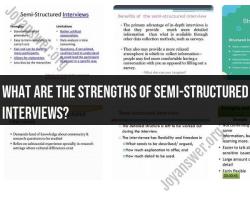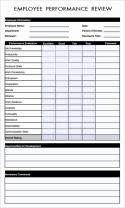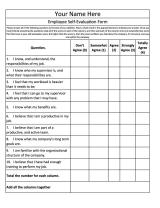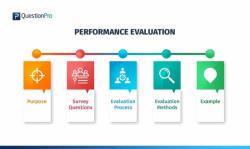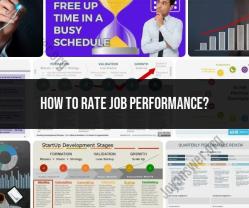Is a structured interview really necessary?
Structured interviews can be highly beneficial in many situations and are often considered a best practice in the hiring and research processes. While they may not be necessary for every context, they offer several advantages that make them a valuable tool. Here's why structured interviews are important and when they are commonly used:
Consistency: Structured interviews are designed to be consistent across all candidates or participants. This consistency ensures that each individual is evaluated based on the same set of questions and criteria. It reduces the risk of bias and provides a fair and equitable assessment.
Objective Evaluation: Structured interviews use predetermined questions and evaluation criteria, making it easier to objectively assess candidates or gather data. This reduces the influence of personal biases that can affect decisions.
Reliability: Structured interviews are more reliable than unstructured or informal interviews. They produce more consistent results, allowing for better comparisons among candidates or participants.
Validity: Structured interviews are often based on well-established criteria or research objectives, increasing the validity of the assessment or study. This means that they measure what they are intended to measure.
Efficiency: Structured interviews are typically more efficient than unstructured ones because they follow a predefined format. This can save time and resources in both hiring and research processes.
Legal Defensibility: Using structured interviews can help organizations demonstrate fairness and compliance with legal and regulatory requirements, which is important in hiring to prevent discrimination claims.
Training and Standardization: Structured interviews can be standardized across interviewers or researchers, making it easier to train and calibrate interviewers to ensure they ask questions consistently and evaluate responses uniformly.
Data Analysis: Structured interviews generate data that is easier to analyze and interpret, as responses are collected in a standardized format. This is particularly important in research studies where data consistency is crucial.
Clear Communication: In structured interviews, participants or candidates know what to expect, which can create a more comfortable and transparent process. This can lead to better interactions and more honest responses.
Quality Decision-Making: Structured interviews can lead to better hiring decisions or more robust research findings because they provide a systematic and reliable way to assess candidates or collect data.
Structured interviews are commonly used in various fields, including human resources, psychology, market research, and social sciences, to name a few. However, there may be situations where unstructured interviews or open-ended discussions are more appropriate, such as when exploring complex, novel topics or when gathering qualitative data that requires in-depth insights.
In summary, while structured interviews may not be necessary in every context, they offer numerous advantages in terms of consistency, objectivity, reliability, and legal defensibility. They are an important tool in the toolkit of many organizations and researchers, and their use should be considered based on the specific goals and requirements of a given situation.
The Role of Structured Interviews in Hiring: Is It Necessary?
Structured interviews are a type of interview in which the interviewer asks a series of pre-defined questions in a specific order. Structured interviews are often used in hiring because they can help to reduce bias and ensure that all candidates are asked the same questions.
Structured interviews are not necessary, but they can be a valuable tool for employers. Structured interviews can help to ensure that all candidates are evaluated fairly and that the hiring process is objective.
Evaluating the Value of Structured Interviews in Recruitment
Structured interviews have a number of advantages, including:
- Fairness: Structured interviews can help to reduce bias by ensuring that all candidates are asked the same questions in the same order.
- Objectivity: Structured interviews can help to ensure that the hiring process is objective by providing a clear and consistent way to evaluate candidates.
- Efficiency: Structured interviews can be more efficient than unstructured interviews because the interviewer does not need to spend time developing questions.
- Reliability: Structured interviews can be more reliable than unstructured interviews because the interviewer is more likely to ask the same questions of all candidates.
However, structured interviews also have some disadvantages, including:
- Rigidity: Structured interviews can be rigid and inflexible, which can make it difficult to get to know the candidate on a personal level.
- Lack of spontaneity: Structured interviews can lack spontaneity, which can make it difficult for the interviewer to assess the candidate's ability to think on their feet.
- Time-consuming: Structured interviews can be time-consuming to develop and conduct.
Structured Interviews: Pros and Cons for Employers and Candidates
Employers
Pros:
- Fairer and more objective hiring process
- More efficient and reliable way to evaluate candidates
- Easier to compare candidates
Cons:
- More time-consuming and expensive to develop and conduct
- Can be rigid and inflexible
- Can lack spontaneity
Candidates
Pros:
- Fairer and more objective interview process
- Know what to expect in the interview
- Can prepare for the interview in advance
Cons:
- Interview may be less personal
- May have difficulty showing their personality and skills in a structured environment
Overall, structured interviews can be a valuable tool for employers, but they are not necessary. Employers should weigh the pros and cons of structured interviews before deciding whether or not to use them in their hiring process.


